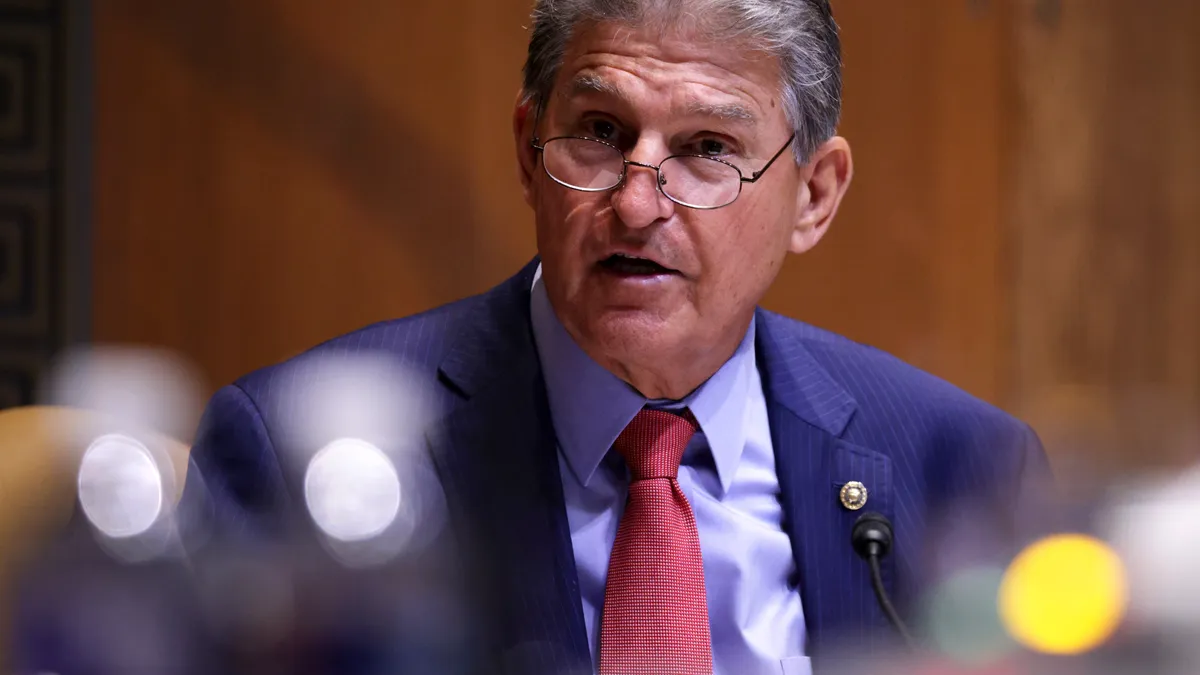Dive Brief:
- Sen. Joseph Manchin, D-W.V., crossed the aisle yesterday to kill the National Labor Relations Board’s joint employer rule.
- Manchin was the single Democrat to join 47 Republicans and two independents in voting for a Congressional Review Act measure of disapproval, a legislative tool that gives Congress the authority to overturn specific executive branch regulations through simple majority votes in both houses. The House passed the CRA measure in question in January.
- President Joe Biden promised to veto the measure during the early debates on it in January. Given the relatively even partisan divide within Congress, it is unlikely that opponents of the joint employer rule could muster the requisite two-thirds majority to overcome a veto.
Dive Insight:
In March, a federal judge in Texas overturned the joint employer rule, setting the stage for a court battle over the regulation, which could nullify the impact of a presidential veto. The joint employer rule would hold franchisors liable for franchisee labor violations if the franchisors reserve the authority to control, or indirectly control, several key conditions of employment. It is similar to, but narrower than, a previous NLRB joint employer standard in place during the Obama administration, which was undone by President Trump’s NLRB.
The International Franchise Association, in a statement emailed to Restaurant Dive, praised the Senate’s passage of the CRA resolution.
The IFA said the rule, if implemented, “would fundamentally change the relationship between franchisor and franchisee. Following passage, IFA sent a petition with over 5,000 signatures from the franchise community to President Joe Biden urging him to sign the legislation.”
Recent lawsuits in restaurant franchising, wherein restaurant franchisees hired convicted sex offenders and had them supervise teenage girls, have raised questions of joint employer liability. In one case against McDonald’s franchisee Rice Enterprises, the plaintiff settled for $4.35 million and the joint employer question was dropped.
In a more recent case, a victim of sexual abuse employed at a Subway in North Dakota sued Subway in addition to the franchisee, stating that the sandwich giant acted as a joint employer. Recent court filings indicate the plaintiff maintains that Subway acted as a joint employer and is liable for the actions of its franchisee.
A strong joint employer standard, in addition to holding franchisors liable, may make it easier for unions to organize franchised brands by reducing the legal fragmentation of employment, which is generally regarded as an impediment to organizing.
The preservation of weak joint employer standards is a political priority for restaurant and franchising trade groups. Last year, the threat of the passage of a strong joint employer law in California helped push industry groups to negotiate with the Service Employees International Union and the administration of Gov. Gavin Newsom, effectively trading higher wages for the preservation of the current standards of liability. In November, the IFA announced it was forming a law center specifically to push back on attempts to expand joint employer liability.












